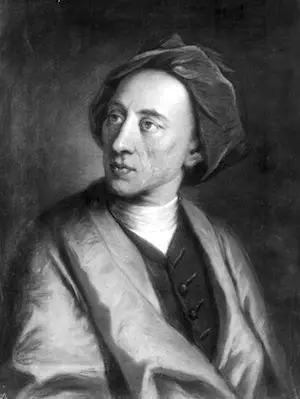The proverb ‘A little knowledge is a dangerous thing’ expresses the idea that a small amount of knowledge can mislead people into thinking that they are more expert than they really are, which can lead to mistakes being made.
A little knowledge is a dangerous thing
What's the meaning of the phrase 'A little knowledge is a dangerous thing'?
What's the origin of the phrase 'A little knowledge is a dangerous thing'?
‘A little knowledge is a dangerous thing’ and ‘a little learning is a dangerous thing’ have been used synonymously since the 18th century.
The ‘little learning’ version is widely attributed to Alexander Pope (1688 – 1744). It is found in his An Essay on Criticism, 1709 and I can find no earlier example of the expression in print:
A little learning is a dangerous thing;
drink deep, or taste not the Pierian spring:
there shallow draughts intoxicate the brain,
and drinking largely sobers us again.
The similarity of the two phrases is demonstrated by what appears to be an impromptu coining of ‘a little knowledge is a dangerous thing’ in a piece in The monthly miscellany; or Gentleman and Lady’s Complete Magazine, Vol II, 1774, in which the writer misquoted Pope:
Mr. Pope says, very truly, “A little knowledge is a dangerous thing.”
Both Pope’s original verse and the misquotation of it were pre-dated by a similar notion expressed by an anonymous author, signing himself ‘A B’, in the collection of letters published in 1698 as The Mystery of Phanaticism:
“Twas well observed by my Lord Bacon, That a little knowledge is apt to puff up, and make men giddy, but a greater share of it will set them right, and bring them to low and humble thoughts of themselves.
Again, there is a degree of misquotation here. ‘My Lord Bacon’ was the English politician and philosopher Francis Bacon, Viscount St Alban, and what he actually said, in his The Essays: Of Atheism, 1601, was:
“A little philosophy inclineth man’s mind to atheism; but depth in philosophy bringeth men’s minds about to religion.”
So, who coined the phrase? It appears to have been a group effort. Bacon can be credited with the idea, Pope with the ‘learning’ version and the mysterious ‘A B’ with the ‘knowledge’ version.
The number of writers who were stating variants of ‘a little learning is a dangerous thing’ in early 18th England is probably a consequence of spread in the availability of scholarly works in English. The Age of the Enlightenment, as the period was known, saw a growth in the interest of cultural and philosophical concerns amongst the middle classes. Discussion of such topics had previously been conducted mainly in Latin and been the preserve of the elite. The sight of the hoi-polloi having views on higher matters wasn’t welcomed by those who had been classically schooled – hence ‘a little learning is a dangerous thing’.
See also: the List of Proverbs.
See also: the last words of Sir Francis Bacon.
Related phrases and meanings
Browse more Phrases
About the Author

Phrases & Meanings
A-Z
A B C D E F G H I J K L M N O P Q R S T UV W XYZ
Categories
American Animals Australian Bible Body Colour Conflict Death Devil Dogs Emotions Euphemism Family Fashion Food French Horses ‘Jack’ Luck Money Military Music Names Nature Nautical Numbers Politics Religion Shakespeare Stupidity Entertainment Weather Women Work
How did we do?
Have you spotted something that needs updated on this page? We review all feedback we receive to ensure that we provide the most accurate and up to date information on phrases.
